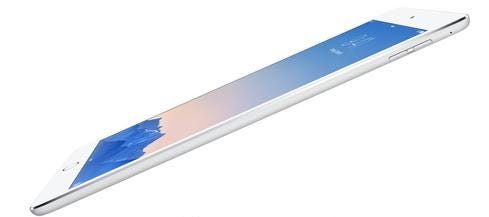iPhones Dominate Apple Results
Apple posts strong Q4 earnings thanks to strong iPhone sales. Meanwhile, iPads continue to decline.


Apple iPad Air 2: Visual Tour
Apple iPad Air 2: Visual Tour (Click image for larger view and slideshow.)
Apple reported its fiscal fourth-quarter earnings late Monday, and the news was mostly good. The company generated revenue of $42.1 billion and earned a net profit of $8.5 billion thanks to strong sales of iPhones and Mac computers. Apple improved most aspects of its business across the board, but there's some concern for the iPad, which saw yet another quarterly decline in shipments.
Apple's revenue is up from $37.5 billion, and its profit is up from $7.5 billion in the year-ago quarter. Gross margin also improved a percentage point, from 37% to 38%, year-over-year. The company sold 39.3 million iPhones, up from 35.2 million in the previous quarter. The iPhone accounted for $23.67 million, or about 56%, of Apple's quarterly revenue. The late-September launch of the iPhone 6 and iPhone 6 Plus surely factored in to the huge quarter, as Apple reported sales of 10 million iPhones over the first weekend alone.
Mac shipments surged 25%, from 4.4 million units in the third quarter to 5.5 million in the fourth. Meanwhile, the iPod, which hasn't been updated since 2012, continued its long decline: Shipments of Apple's dedicated media player sank from 2.9 million in the third quarter to 2.6 million.
[Will Apple Pay revolutionize the mobile payment industry? Read Apple Pay: Where To Use It.]
iPad shipments dropped from 13.28 million in the third quarter to 12.32 million in the fourth. Shipments are down from 14.08 million in the year-ago period. Apple CEO Tim Cook sought to calm the fears of investors during its earnings call. "I know that there's a lot of negative commentary in the market on iPad, but I have a sort of different perspective on it. We've sold 247 million over the first four years; that's more than we sold over the first four years of iPhone. To me, I view it as a speed bump, not a huge issue," said Cook, with respect to the iPad's stalled growth. "That said, we want to grow -- we don't like negative numbers on these things."
{image 1}
Cook also suggested the slowdown in iPad sales reflects the fact that consumers are waiting for new models, which Apple announced just last week. Further, Cook noted that about 50% of all iPad sales were to new customers, not those upgrading models. That leads Cook to believe the market still has plenty of room for growth. The company thinks iPad sales will turn around thanks to the iPad Air 2 and iPad Mini 3, both of which add Touch ID sensors and gold color options. The new iPads became available for preorder on October 17 and begin to ship this week.
As customary, Apple offered guidance for its first 2015 fiscal quarter, and the numbers are pretty bullish. The company believes it will generate between $63.5 billion and $66.5 billion in revenue, with operating expenses landing between $5.4 billion and $5.5 billion. It predicts gross margin will be between 37.5% and 38.5%, and it will have a tax rate of about 26.5%. Apple's holiday-quarter iPhone sales should land around 65 million. The company might even sell 70 million devices if it can get supply in line with demand.
The Internet of Things demands reliable connectivity, but standards remain up in the air. Here's how to kick your IoT strategy into high gear. Get the new IoT Goes Mobile issue of InformationWeek Tech Digest today. (Free registration required.)
About the Author
You May Also Like






